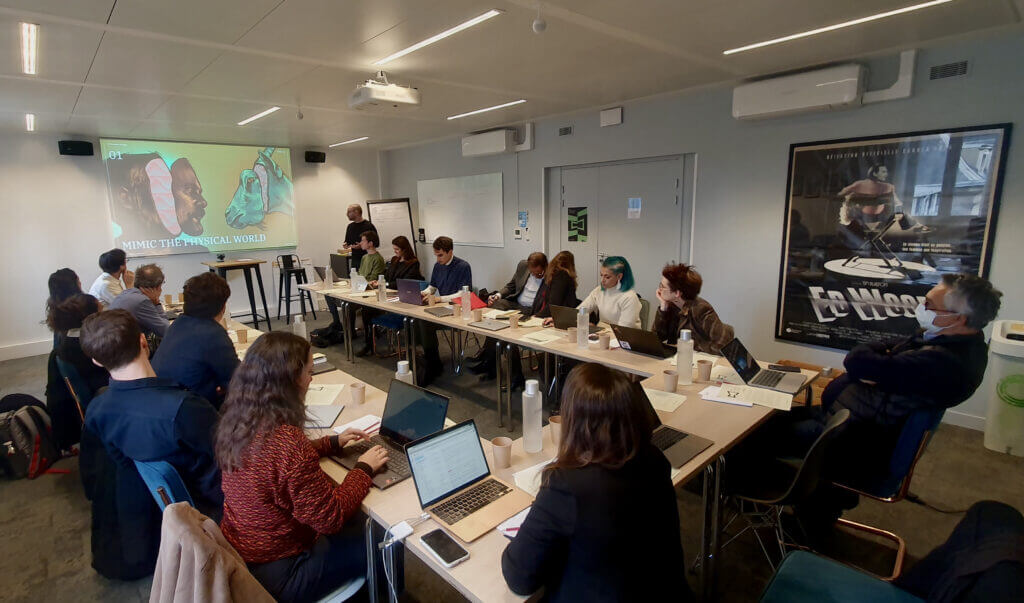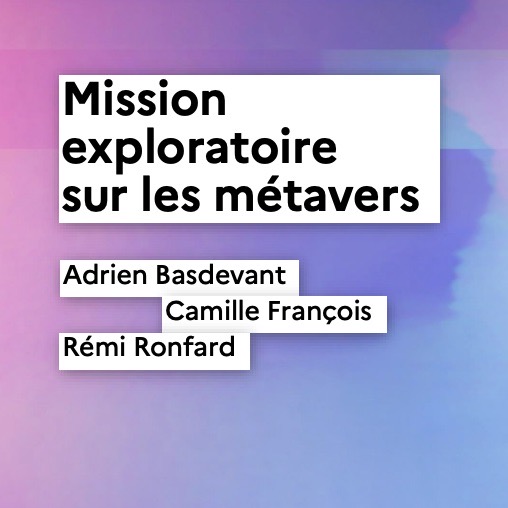A (continued) invitation to dialogue
Through its Metaverse Dialogues, Renaissance Numérique enabled a high-level exchange between international experts in immersive technologies, worlds, realities, and experiences. Meeting over three separate one-day working sessions between December 2022 and June 2023, these experts from a variety of backgrounds and fields (sociology, economics, law, political science, psychology, technology, etc.) shared their knowledge and compared their views on the uses, imaginaries, business models, and ethical, legal, regulatory, and governance issues surrounding the Metaverse.

This iterative, collaborative approach has helped to reduce some of the vagueness surrounding the Metaverse. It has also led to the formulation of six key recommendations, addressed to political decision-makers, in particular the next European Commission, and to anyone interested in or involved in the construction of metaverses. However, the dialogue deserves to be continued.
What role for the civil society?
Firstly, because the Metaverse creates tension between the different types of development possible, each encapsulating models that are sometimes opposed in the technologies, values, and principles that underpin or govern them. In this way, it highlights societal choices that go beyond those of our digitised interactions, and highlights our dissatisfaction with those we make on a daily basis. But what voice does civil society really have in these discussions and stances? If charters and declarations of good intentions represent its interests, what levers can we put in place to develop (or not) one or more metaverses that reflect society's choices?
What territoriality of the law?
Secondly, the question of the territoriality of the law applicable in the Metaverse is likely to prove thorny. While the law is inevitably territorial, one of the Metaverse's promises is, inversely, to be able to engage in digital experiences that are territorially undefined and synchronised with an infinite number of people. If this promise follows Marshall McLuhan's vision of the global village, a diversity of cultures will probably coexist in the Metaverse, since this is already the case in our online interactions. Will the reconciliation of different meanings, understandings and applications of rights, conventions, and standards call for a territorialisation of the Metaverse? Should we also, as MEPs Axel Voss and Ibán García del Blanco suggest, examine the idea of a special legal status for avatars?
The Metaverse in the era of “global boiling”
However, as with the European Parliament, one of the arguments most often put forward in support of this kind of development, is its promoters’ unique conviction that “virtual worlds can make a positive contribution to the fight against climate change and for environmental sustainability, for example by facilitating remote working, thereby reducing commuting and associated carbon emissions” [[[European Parliament (2023), “Draft Report. Virtual worlds – opportunities, risks and policy implications for the single market (2022/2198(INI))”, Committee on the Internal Market and Consumer Protection, 4 August 2023, p. 6: https://www.europarl.europa.eu/doceo/document/IMCO-PR-751902_EN.pdf]]]. As Alain Berthoz points out in the report of the French exploratory mission on metaverses, this argument illustrates the risk of "a form of denial of reality in the face of climate challenges” [[[Basdevant A., François C., Ronfard R. (2022), op. cit., p. 82.]]].
Indeed, while remote working undoubtedly requires more powerful digital tools, it probably does not require the development of immersive virtual worlds for the vast majority of professional uses, many of which boil down to videoconferences during which more and more people can be seen turning off their cameras. Furthermore, a simple look at the history of science and technology and the reality of the rebound effect (or Jevons' paradox) is enough to illustrate that the energy benefits expected from the development of a technology, due to a significant amplification of behaviour, are rarely achieved.

Consequently, there is now an urgent need for collective (and individual) reflection on the actual and possible uses of the Metaverse in terms of the direct and indirect effects they may have on environmental impact, whether positive or negative.
Looking beyond the usage, studying the representations of Metaverse
Ultimately, we need to understand the Metaverse as a concept that allows us to anticipate possible immersive uses, which leads us to anticipate certain regulations, but which also updates and questions a large number of concepts that often pre-existed the uses, and therefore the adoption, of any technology. Consequently, over and above the discussions about the possible uses of the Metaverse, which occupy a (probably overly) significant place in the debates between experts and in the media, we need to take a closer look at the technological and societal imaginaries that are reflected in the various representations of the Metaverse, or that these representations bring to light.
It is only by understanding, sharing, and discussing them that we will collectively find the way to build, whether responsibly or not, our future digital interactions.







